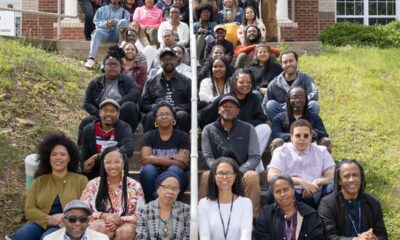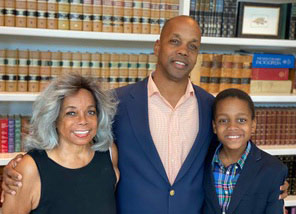Business
Business Certification as a Tool for Black-Owned Businesses to Grow

Fern Gillespie
Black-owned businesses have recently captured the imagination of the media and marketing agencies. At last, Black entrepreneurs and their companies are being celebrated on talk shows, television commercials and high profile corporate partnerships.
Historically, Black-owned businesses have had positive impacts on their communities. According to the Census, Black firms provided income for roughly 1.4 million workers in 2021. “These businesses generally employ more Black people than non-Black owned businesses, along with providing an example for the community that if you have a sound idea and can attract a buying market for your product or service,” said Terrence Clark, President and CEO, New York & New Jersey Minority Supplier Development Council (The Council), told Our Time Press. “You can develop a business which provides self-employment, along with employment for others.”
Clark has been on the frontline promoting and nurturing Black and minority-owned businesses for decades. Prior to joining The Council, he served as Vice President of Entrepreneurship and Business Development for the National Urban League. He sits on the Economic Impact Committee of Stonehenge Capital and on the Minority and Women Business Enterprise Advisory Councils for the NYC Comptroller and the NYS Governor. In 2021, he was named as one of the Notable Black Leaders and Executives by Crain’s New York.
The Council, one of New York and New Jersey’s leading diversity business organizations, certifies minority-owned businesses that are Asian, Black, Hispanic, and Native-American to aid in creating corporate partnerships and collaborations. In addition to M/WBEs, The Council’s membership consists of Fortune 500 corporations, government agencies, educational institutions, and non-profit organizations.
To Clark, business certification opens up more opportunities for Black business owners to grow. “For businesses that do business with other businesses, it expands opportunities to do business with private sector corporations that have expressed an interest in diversifying their supplier base,” said Clark. “It also connects these businesses to a national network of minority businesses and corporations that opens up potential teaming and joint venture opportunities. MBE certification through The Council makes you eligible to participate in all NYNJMSDC events, including seminars, and procurement fairs, as well as benefit from newly certified supplier orientations.”
This February 2024, the annual report from the New York City Comptroller’s Office on M/WBE New York City agency contracts in 2023 stated that certified M/WBEs were only awarded only 9.8 percent of eligible contracts. This is down from 16 percent awarded in 2022. However, the majority of these M/WBE contracts went to businesses owned by White women and Asian men. Black M/WBEs represented only 1.16 percent of registered value contracts, Hispanic M/WBEs only 0.96 percent, and women-of-color combined was 1.03 percent. “There are several factors which include size of contracts,” explained Clark. “Many contracts with New York City are very large and out of the reach of many smaller businesses. The de-bungling of contracts which would make them smaller in size and dollar value would help. Also, better marketing of opportunities so that more businesses are aware of opportunities.”
Brooklyn-based ASHAY Media Group is a Black-owned boutique branding and ideas agency specializing in building culturally relevant and meaningful campaigns. The 24-year-old firm was founded by Cherise Trahan-Miller, Creative Director and her husband, Stephen A. TrahanMiller, Executive Producer. ASHAY has a deep understanding of diverse perspectives and experience using, design, social and print content, and branding and marketing campaigns that authentically engage with BIPOC communities. Client include: NBC Universal, CUNY, NYC Mayor Office, Essence, AURN, The Council, National Minority Supplier Development Council and many others.
M/WBE certification is part of ASHAY’s business plan. The firm has been certified with the New York & New Jersey Supplier Development Council, New York City, New York State and National Minority Supplier Development Council. “Certification as a minority-owned business can be advantageous for Black businesses. It provides them access to various government programs, contracts, and procurement opportunities, promoting diversity and inclusion. It also helps to increase visibility, credibility, and networking opportunities within the business community,” Cherise Trahan-Miller explained to Our Time Press. “Additionally, certification can serve as a tool to combat systemic inequalities and discrimination by creating a level playing field and encouraging equitable business practices. However, it is crucial to note that certification alone may not be enough to solve all the challenges that Black businesses face. Broader efforts are needed to address systemic barriers and promote equal opportunities.”
Entrepreneur veteran Trahan-Miller points out that Black-owned businesses in New York City have several significant challenges that limit their growth and success. “These challenges include difficulties accessing capital, lack of support and resources, systemic inequalities and discrimination, and limited visibility and marketing opportunities,” she said. “A comprehensive approach is necessary to address these issues effectively, which involves the government’s support, community initiatives, and efforts to promote equity and inclusivity in the business ecosystem.”













